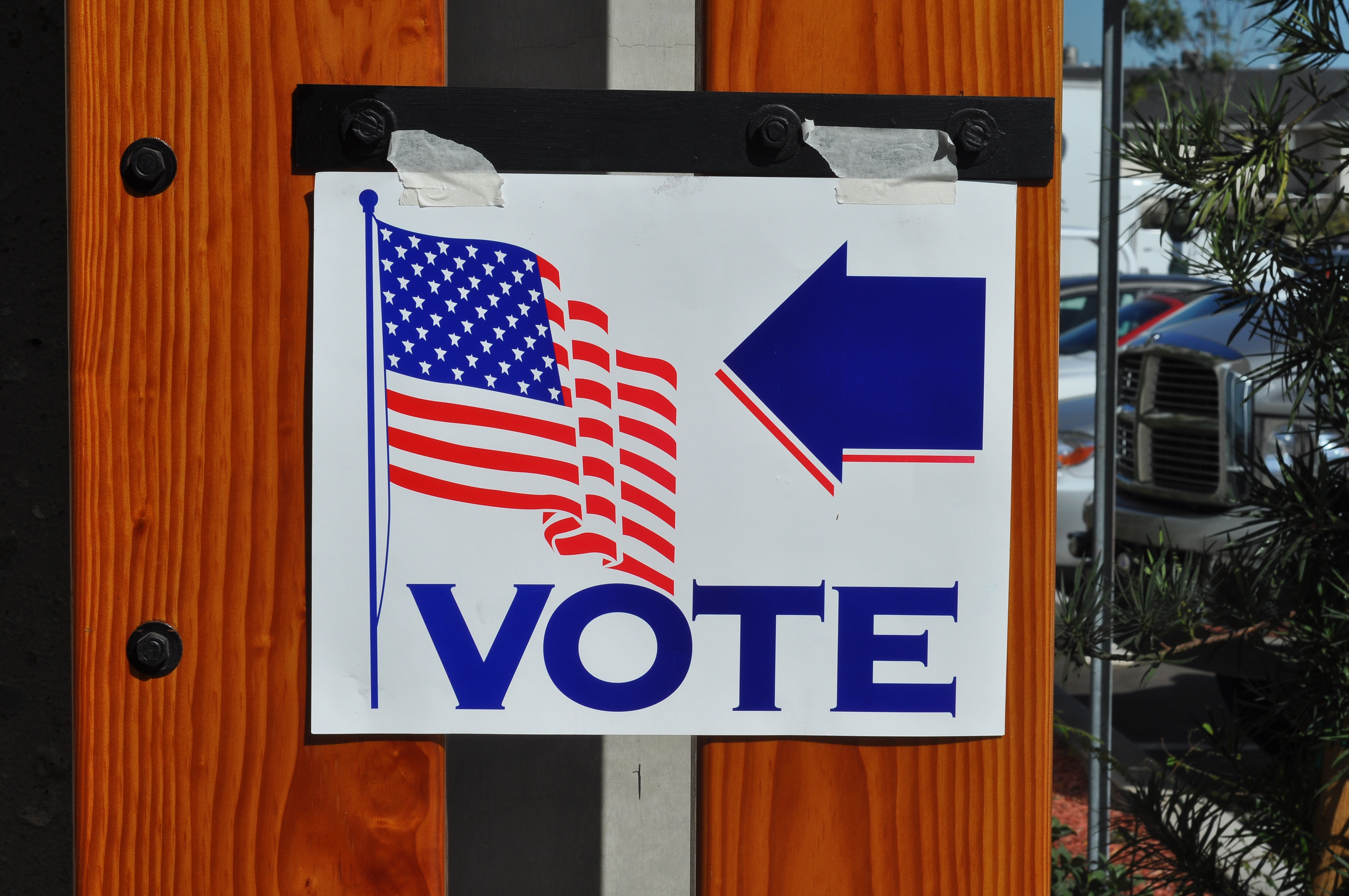 In a
February statement by the United States Attorney General Eric Holder, he
decided to announce a new push by the Department of Justice to fight state laws
that restrict the voting privileges of convicted felons. In doing so, he stated that “By perpetuating
the stigma and isolation imposed on formerly incarcerated individuals, these
laws increase the likelihood [that felons] will commit future offenses.” He went on to attack such laws on the basis
of their disproportionate effect on minority communities that they impose, presuming
higher rates of convicted felons in minority communites, and the nature of the
laws as being of an additional punishment levied on felons who have already
served their due sentence. While these
arguments appear facially valid, whether or not they could withstand legal
challenge as a reason for why such laws should be repealed still stands to be
seen.
In a
February statement by the United States Attorney General Eric Holder, he
decided to announce a new push by the Department of Justice to fight state laws
that restrict the voting privileges of convicted felons. In doing so, he stated that “By perpetuating
the stigma and isolation imposed on formerly incarcerated individuals, these
laws increase the likelihood [that felons] will commit future offenses.” He went on to attack such laws on the basis
of their disproportionate effect on minority communities that they impose, presuming
higher rates of convicted felons in minority communites, and the nature of the
laws as being of an additional punishment levied on felons who have already
served their due sentence. While these
arguments appear facially valid, whether or not they could withstand legal
challenge as a reason for why such laws should be repealed still stands to be
seen.Friday, February 28, 2014
A Reexamination of Felon Voting Privileges and its Natural Extensions
 In a
February statement by the United States Attorney General Eric Holder, he
decided to announce a new push by the Department of Justice to fight state laws
that restrict the voting privileges of convicted felons. In doing so, he stated that “By perpetuating
the stigma and isolation imposed on formerly incarcerated individuals, these
laws increase the likelihood [that felons] will commit future offenses.” He went on to attack such laws on the basis
of their disproportionate effect on minority communities that they impose, presuming
higher rates of convicted felons in minority communites, and the nature of the
laws as being of an additional punishment levied on felons who have already
served their due sentence. While these
arguments appear facially valid, whether or not they could withstand legal
challenge as a reason for why such laws should be repealed still stands to be
seen.
In a
February statement by the United States Attorney General Eric Holder, he
decided to announce a new push by the Department of Justice to fight state laws
that restrict the voting privileges of convicted felons. In doing so, he stated that “By perpetuating
the stigma and isolation imposed on formerly incarcerated individuals, these
laws increase the likelihood [that felons] will commit future offenses.” He went on to attack such laws on the basis
of their disproportionate effect on minority communities that they impose, presuming
higher rates of convicted felons in minority communites, and the nature of the
laws as being of an additional punishment levied on felons who have already
served their due sentence. While these
arguments appear facially valid, whether or not they could withstand legal
challenge as a reason for why such laws should be repealed still stands to be
seen.Tuesday, February 25, 2014
Political Campaign Donations: Is it the Question or the Answer that Matters?
 It has been now a few months since the world
learned that political appointees in the administration of Governor Chris
Christie (R-NJ) likely ordered the closure of driving lanes on the George
Washington Memorial Bridge. The emails between senior aides indicate that the
closures may have been retribution directed towards the Mayor of Fort Lee, New
Jersey for failing to endorse Christie in his 2013 re-election campaign. There
has also been claims made that relief aid from Hurricane Sandy was used a means
to coax political support. Similarly, the indictment against former Governor Bob McDonnell (R-VA) and his wife paints a similar picture. If
one accepts the Department of Justice’s version of events, the McDonnell’s were
the protagonists who, by virtue of McDonnell’s ascent to the Governorship,
communicated that lavish gifts and donations would have payoffs.
It has been now a few months since the world
learned that political appointees in the administration of Governor Chris
Christie (R-NJ) likely ordered the closure of driving lanes on the George
Washington Memorial Bridge. The emails between senior aides indicate that the
closures may have been retribution directed towards the Mayor of Fort Lee, New
Jersey for failing to endorse Christie in his 2013 re-election campaign. There
has also been claims made that relief aid from Hurricane Sandy was used a means
to coax political support. Similarly, the indictment against former Governor Bob McDonnell (R-VA) and his wife paints a similar picture. If
one accepts the Department of Justice’s version of events, the McDonnell’s were
the protagonists who, by virtue of McDonnell’s ascent to the Governorship,
communicated that lavish gifts and donations would have payoffs. Friday, February 21, 2014
Sam Sung Like a Canary: What Riley v. California and United States v. Wurie Mean For Digital Privacy Rights
“Three can keep a secret if two of them are dead.” Benjamin Franklin’s famous idiom, in essence, alludes to the fact that our most intimate secrets may never be safe in the hands of another. In the age of the “Digital Revolution,” however, is our intimate information really safe in our own hands? 91% of adult American’s own cell phones today, and as the technology becomes more sophisticated, so does our use of it. Thumbing through our phones is no longer about a list of names and numbers, it has evolved into much more sensitive information. Our phones have become an extension of ourselves and contain information including emails, photos, and GPS data. Consequently, modern technology has courts struggling to apply a search-incident-to-arrest jurisprudence that was developed before the dawn of the digital era to the question of whether the Fourth Amendment permits warrantless searches of data on a cell phone seized from an individual.[1] Accordingly, the Supreme Court has granted certiorari in a set of pivotal constitutional privacy rights cases.
Tuesday, February 18, 2014
Criminal Defense Advertising: The Benefits and Detriments of a Super Bowl Commercial
The Super
Bowl draws approximately 150 million viewers, making it the most watched
program on American television each year.
Due to this expansive viewership, a 30-second national advertisement can
cost as much as $4 million. Many large companies,
like Budweiser and T-Mobile, run more than one commercial in an effort to reach
as many viewers as possible. However, not all ads that run during the Super
Bowl are funded by multimillion-dollar corporations. Many time slots are filled by local companies
looking to advertise regionally without the extreme costs of a national airing.
Friday, February 14, 2014
Cryptocurrencies And Criminal Activity: What Should Be Done About Bitcoin?
In 2009, computer programmer Satoshi Nakamoto created an
open source peer-to-peer digital currency known as “Bitcoin.” As such, Bitcoin has no physical manifestation
and removes the need for third-party intermediaries (e.g., PayPal or Visa). In addition, because it is peer-to-peer,
its controlling computer code is open to public view. However, the unique feature of Bitcoin is
that it is the world’s first completely decentralized digital-payments system,
meaning that no government or central authority has control over Bitcoin. Businesses and venture capitalists have both taken notice of the potential promise of Bitcoin, and so too have
criminals.
Wednesday, February 12, 2014
No Cheating Allowed: Prince George’s County Adopts the Double-Blind Method of Eyewitness Photo Identification
On
February 9, 2014, the Prince George’s County Police Department (MD) announced
that it will start conducting photo lineups using the “double-blind” method. The
new changes will require police officers to institute two safeguards when
showing eyewitnesses a photo lineup: (1) police officers must show the witness
the photos one at a time, rather than all at once; and (2) the police officer
showing the photos must be unfamiliar with the case. The change is part of an effort to minimize
false identifications and subsequently, wrongful convictions. The accuracy of photo lineups has been a hot
topic over the past decade as DNA evidence has been used more frequently to
overturn convictions. A recent study by the innocence project found that eyewitness
misidentification plays a role in over 75% of convictions overturned by DNA
testing, making it the single greatest cause of wrongful convictions
nationwide.
Tuesday, February 11, 2014
Recidivism, Restorative Justice, and the Abnormally High Rate Of Rape In Alaska
In a recent article, CNN reporter John D. Sutter referred to the state of Alaska as
“the national epicenter of rape.” Sutter is not some avid anti-Alaskan,
nor does he seem to harbor any irrational dislikes of the Pacific Northwest. Rather, Sutter wrote the article in response
to the 2012 FBI crime statistics, which showed Alaska to have the highest rate of
reported rape. According to the FBI report, eighty
rapes are reported for every 100,000 people; almost three times the national
average of twenty-seven. In comparison
to New Jersey, where rape is reported the least, Alaska’s rapes per 100,000
people is seven times higher. Sutter’s
report went even deeper and found that 59% of women in Alaska have experienced
“sexual or intimate partner violence, and that four in ten women reported to
have been raped or sexually assaulted.
Friday, February 7, 2014
Florida’s Stand Your Ground Law on Trial, Again
On Monday, February 3, 2014, Angela Corey began jury selection as she prepares to prosecute a second, high profile murder case in
Florida. Corey is prosecuting Michael David Dunn for the murder and attempted murder of seventeen year old Jordan Davis and his
friends. Davis was killed in the parking lot of a
Jacksonville, FL gas station on November 23, 2013. Corey is the prosecutor who was hand selected
to investigate the Trayvon Martin case in March 2013.
Tuesday, February 4, 2014
The Gap Between Policy and Practice at the D.C. Jail: A Discussion of the Shortcomings of Mental Health Treatment and Suicide Risk Prevention
On November 7, 2013 Virginia
Willis, a D.C. resident, testified before the Committee on the Judiciary and Public
Safety at a Public Oversight Hearing regarding her fiancé’s suicide at the D.C. Jail in June of 2013. Mrs. Willis came before the committee with
many unanswered questions: what is in the cells that can be used for inmates to
hang themselves and what is being done to change that? What measures are put in place if an inmate
comes in with a mental illness? Is old paperwork being pulled up? Unfortunately, besides naming a specialized
task force and referring to an expert’s report on the current state of the D.C.
Jail, Chairperson Tommy Wells found himself apologetic and unable to answer
such imperative questions.
Subscribe to:
Comments (Atom)






